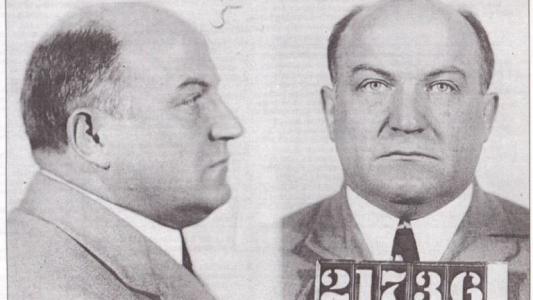George Remus emigrated from Germany to America with his family in 1882. By the age of 19, he became a certified pharmacist in Chicago, and by the age of 21, he had purchased his first pharmacy. At 24, after his purchase of yet another drugstore, George decided to quit the pharmacy business and instead pursue a career in law.
He attended what is now the DePaul University College of Law at night (in half the usual time) and was admitted to the Illinois Bar in 1904. He became an accomplished criminal defense lawyer. He pioneered the progenitor to the temporary insanity defense in a notorious murder case in 1914. By 1920, George was earning close to $500,000 a year, or nearly $7.5 million in today's dollars. But this was not enough for George.
By that time, the 18th Amendment to the US Constitution, and its implementing federal statute, the Volstead Act, banned the manufacture and sale of alcoholic beverages. George noticed that many of his clients were becoming wealthy by circumventing the law, despite their numerous brushes with it. He decided he could do bootlegging better.
He literally memorized the Volstead Act. Two salient features rose to prominence in George's learned estimation. The first is that the Act did not prohibit alcohol distilled and sold with a prescription for medicinal purposes, and the second is that the Act authorized the use of government-bonded distilleries and maintained pre-prohibition legality of warehoused inventory. George began buying up pharmaceutical companies (naturally) and bonded distilleries in Cincinnati, where eighty percent of all legal whiskey in America was warehoused. He established a trucking company to run the booze, and hired armed gangs to hijack his own shipments.
He soon would become known as the King of the Bootleggers, one of the wealthiest men in America, and reportedly the inspiration behind F. Scott Fitzgerald's main character in The Great Gatsby (1925).
Hubristic overextension led to his ultimate sting, arrest, and imprisonment for a two-year federal sentence in Atlanta in 1924. While in prison, George confided to a fellow inmate the details of his multi-million dollar empire, then in the capable and loyal hands of his wife, Imogene Holmes, patiently awaiting his return. This inmate, Franklin Dodge, was in fact an undercover prohibition agent sent there by the Department of Justice to extract intelligence from George on his operations.
Dodge declined to report this intelligence to his superiors at the FBI. Instead, Dodge quit his job and spent a great deal of time with Imogene, ultimately seducing her. Together, armed with Imogene's power of attorney over the business, they liquidated everything George had built, while George sat helpless behind bars. They left him with a mere $100.
After George's release from prison, Imogene and Dodge paid $15,000 (more than $250,000 in today's money) to a hit man to assassinate George. The plot is foiled when the hitman confessed it—to George himself.
In 1927, Imogene filed for divorce from George. On the day of the divorce, on the way to the Cincinnati courthouse, George, lying in wait, spotted Imogene and instructed his taxi driver to intercept Imogene's cab. George forced her car off the road, and then shot Imogene with a pistol in plain sight in front of Imogene's daughter and numerous other witnesses, killing her. He then walked to the nearest police station and turned himself in.
In 1928, George is tried for murder. He represented himself. He won an acquittal--not guilty by reason of temporary insanity.
It took just 19 minutes for the jury to return the not guilty verdict. Said one juror: “We felt that Remus had been greatly wronged, that he had suffered almost beyond human endurance.”
George spent seven months in an insane asylum, after which he lived an uneventful life for more than twenty years. He died in Covington, Kentucky at the age of 73, in 1952.
________________
Additional fun facts
At the height of their glory, George and Imogene would host lavish, grandiose parties at their mansion, known as the Marble Palace. At one such party in 1922 with over 100 couples, George gave to each male guest a diamond stickpin, and to each guest's wife, a new car.
George had a daughter, Romola, by his first wife. Romola was a child actress in silent films and played the first theatrical Dorothy in the 1908 Wizard of Oz.
George is buried next to his third wife, his former secretary Blanche Watson. George left his first wife in 1920 for Imogene, who was at time his secretary.
George never drank a drop of alcohol and was known to refer to himself in the third person.






















